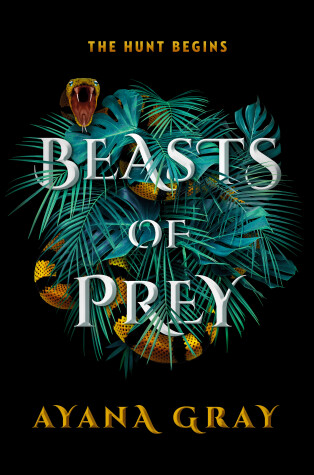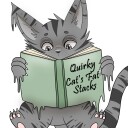
nannah
Content warnings:
- substance addiction
- adding to the above, forced/non-consensual administering of drugs
Representation:
- every character is African
- one MC has OCD and/or possibly autism
Koffi is an indentured worker of the Night Zoo, a place full of dangerous and magical creatures, to help pay off her family’s debts. Ekon is a boy who longs to be one of the Sons of the Six warriors like his brother and father. But a fire at the Night Zoo interrupts his final test. During the chaos, he sees the Shetani, the demon who killed his father ... he also sees Koffi, who sends the Shetani away with only a few words. Ekon lets Koffi run from the Night Zoo’s and its bonds of servitude, but it costs him a position as a Son of the Six.
Both Koffi and Ekon need the Shetani: Koffi to pay off her mother's debts, and Ekon to prove himself. They reluctantly team up and hunt the demon, but soon it’s not clear whether they’re the hunters or the prey.
I have to begin by saying the maps before the endpaper are gorgeous! They’re some of the most beautiful maps I’ve seen in a book for a long time. They really helped me get into that thrilled and ready mindset to begin reading. Even if I don’t quite think they were necessary, because I never needed to flip back to them once I got into the book itself. Still cool, though--I’ll never say no to a gorgeous map.
Initially, the writing makes a really good impression. It’s at a much higher quality than a lot of YA I’ve been reading this year. The author’s strengths definitely lie within crafting the world building, and then describing beats and actions. I can picture everything perfectly and vividly. As the book progresses past the halfway mark and beyond, though, there’s a marked decline in the writing (and editing) quality. And the overuse of italics gets old very fast. They take me out of the story and almost make the text sound melodramatic when they’re in every other paragraph. The lines of dialogue or inner monologue by themselves are fine, but with the italics they have a whole different feeling.
Speaking of the dialogue, there are many times where wooden, almost unnatural-sounding lines are … awfully convenient. Meaning, upon a second glance it becomes clear that a certain line is said not because the character would actually say it in that situation, but because the plot or some element of conflict needs it. Like Koffi saying, after a completely unrelated conversation, “Thank god it’s just us going after [the Shetani]. I don’t know what I’d do if this were any more complicated.” The line is said to get a reaction from Ekon, who knows something she doesn’t at this point, but it’s jarring because she wouldn’t know to do that.
I’m not sure if I’ll read the second book. But I’m still so impressed with the story world here, the complexity of the religion and the world building, that I won’t miss whatever Ayana Gray writes next outside of the duology.
(one more thing: why must the villain do that thing where they tell the MC the reason they've done all these evil things ... by outright saying, "You've [done this for me], so I will tell you." WHY?)


